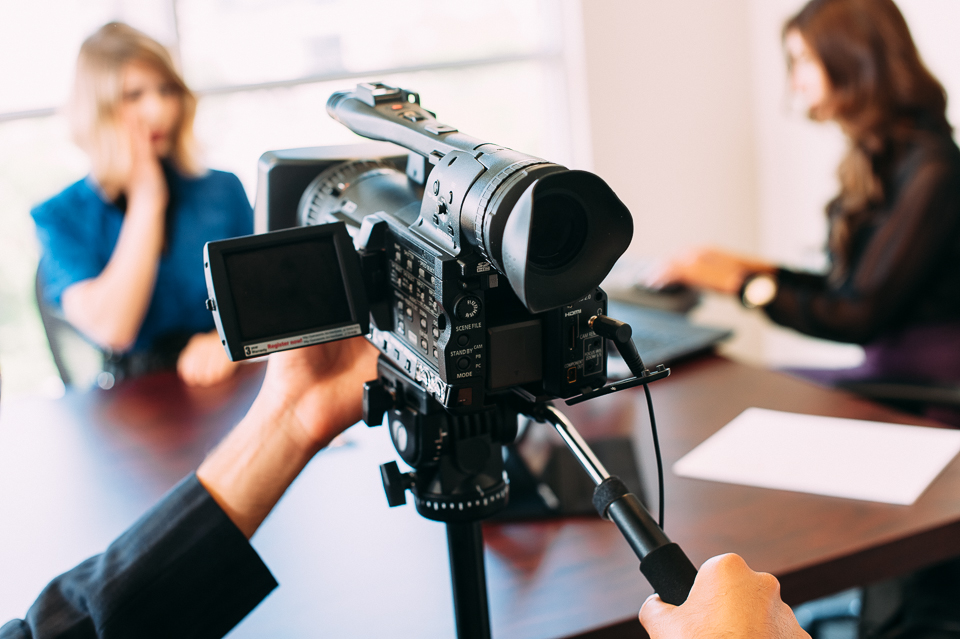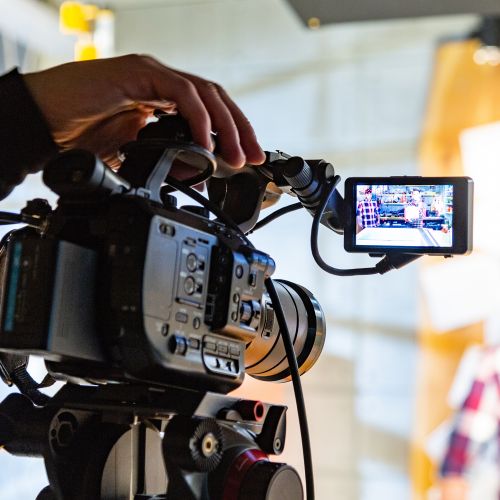The Role of Legal Videography in Depositions and Trials
Legal videography has actually arised as a necessary tool in both depositions and tests, supplying a diverse technique to documenting witness statements. As legal specialists increasingly recognize its worth, it prompts a much deeper assessment of exactly how these visual documents can influence juror understandings and test outcomes.
Relevance of Legal Videography
Lawful videography plays a pivotal function in the documents and presentation of depositions and tests. This specialized area incorporates technological abilities with legal understanding to produce a trusted record of proceedings that can dramatically affect instance outcomes. The aesthetic element of legal videography enhances the understanding of witness statement, permitting jurors and judges to observe not just the spoken words yet likewise the disposition, feelings, and body movement of the witnesses.

The value of legal videography prolongs past the courtroom; it also plays a crucial duty in maintaining evidence for future reference, whether for allures or more lawsuit. Because of this, its combination right into the legal procedure is vital for making sure a fair and accurate depiction of the realities, ultimately adding to the quest of justice.

Refine of Legal Videography
While capturing the subtleties of depositions and tests, the procedure of legal videography includes a number of essential actions that ensure high-quality, accurate recordings. Originally, a specialist lawful videographer prepares by evaluating the case materials and understanding the details demands of the deposition or trial. This prep work includes acquainting themselves with the participants and the context, which aids in recording significant information.
On the day of the recording, the videographer establishes the required equipment, which normally consists of high-definition electronic cameras, microphones, and appropriate illumination. Ensuring optimal angles and audio high quality is important, as it straight impacts the effectiveness of the recording. The videographer communicates with attorneys and participants to establish protocols, guaranteeing that everyone recognizes the recording procedure.
Throughout the deposition or trial, the videographer diligently tape-records the procedures, paying very close attention to both verbal and non-verbal cues. legal videography. This consists of capturing the behavior and responses of witnesses and lawyers. After the session ends, the videographer might modify the video footage for clarity and conformity with legal criteria, generating a last product that precisely shows the proceedings for future reference and usage in legal contexts
Benefits in Depositions
The incorporation of videography in depositions provides numerous benefits that boost the overall procedure of collecting evidence. One main advantage is the capability to capture witness statements with aesthetic and acoustic fidelity, supplying an extra accurate representation of the witness's disposition, tone, and body movement. This multidimensional technique allows lawyers and courts to evaluate integrity better than typical written transcripts alone.
In addition, videographed depositions serve as a powerful tool for protecting testimony. Must a witness ended up being inaccessible for test, their recorded deposition can be played in court, making sure that their proof remains easily accessible and appropriate. This facet dramatically minimizes the risk of losing important information that might influence case results.
Furthermore, making use of lawful videography promotes far better preparation for attorneys. Reviewing video clip footage allows legal groups to analyze and improve their methods, determining staminas and weaknesses in their instances. This preparatory benefit can cause even more engaging discussions in court.
Lastly, videography enhances the total professionalism and trust of the deposition procedure, instilling confidence in clients regarding the thoroughness of their lawful representation. By leveraging innovation, lawyers can substantially improve the effectiveness of depositions.
Effect On Tests
In numerous tests, the combination of videography can significantly affect the presentation of evidence and the jury's perception. Lawful videography records witness testimonies and essential proof in a dynamic format, permitting jurors to involve with the material on several degrees. This visual part boosts the narration facet of a trial, giving context and psychological vibration that conventional text-based proof may do not have.
Furthermore, video clip click recordings can offer as effective pop over to these guys tools for impeachment during cross-examination. When disparities develop in between a witness's prior declarations and their court testament, video proof supplies an unbiased reference that can guide jurors' viewpoints. This immediacy and clarity can strengthen the reputation of a celebration's narrative while simultaneously threatening opposing disagreements.
Furthermore, making use of videography can help streamline intricate information, making it more easily accessible to jurors who might struggle to understand intricate information presented entirely via spoken testament. By combining visuals with acoustic info, lawful videography can enhance retention and understanding, eventually affecting the jury's decision-making procedure. The effect of videography in tests extends beyond plain aesthetic appeals; it plays a vital function in shaping the lawful landscape and results.
Future Trends in Legal Videography
As we look towards the future of legal videography, several emerging fads guarantee to reshape its function within the courtroom. One substantial fad is the combination of expert system (AI) in video clip analysis and editing and enhancing - legal videography. AI can enhance the process of determining crucial minutes in recorded depositions, allowing lawyers to rapidly access pertinent content, consequently enhancing performance in instance prep work
In addition, the surge of virtual truth (VR) and enhanced fact (AR) technologies is anticipated to change how jurors experience proof. By submersing jurors in a substitute setting, these technologies can supply an extra extensive understanding of complicated scenarios, resulting in even more educated considerations.

Furthermore, the increasing need for remote depositions, increased by the COVID-19 pandemic, will likely proceed. Lawful videographers will certainly require to adjust to brand-new Source software program and platforms to guarantee high-quality recordings in digital settings.
Last but not least, the expanding focus on data protection will necessitate stricter protocols for keeping and sharing video evidence. As the legal landscape develops, legal videographers have to stay abreast of these fads to preserve their significance and performance in the judicial procedure.

Conclusion
In recap, legal videography serves an essential feature in the judicial process, boosting the honesty of depositions and tests. As modern technology continues to evolve, lawful videography is positioned to additional change its duty within the legal landscape.